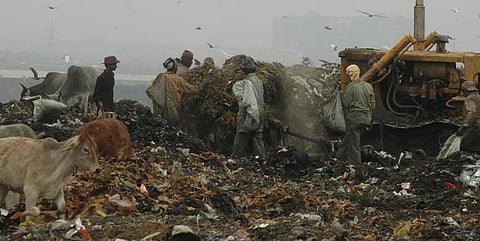

Prime Minister Narendra Modi will launch the second phase of the Swachh Bharat Mission-Urban (SBM-U 2.0) Mission October 1, 2021, to make all cities in India ‘garbage free’. Along with this, Modi will also flag of the second phase of the Atal Mission for Rejuvenation and Urban Transformation (AMRUT 2.0).
The SBM-U 2.0, with an outlay of Rs. 1.41 lakh crore, aims to make Indian cities ‘garbage free’ and all urban local bodies (ULBs) open defecation free.
“The Mission will focus on source segregation of solid waste, utilising the principles of 3Rs (reduce, reuse, recycle), scientific processing of all types of municipal solid waste (MSW) and remediation of legacy dumpsites for effective solid waste management,” a press statement from the Press Information Bureau, said.
There has been an explosion in the generation of MSW in Indian cities due to a burgeoning population and even faster urbanisation. This has severely damaged the environment and public health and strained the capacity of ULBs to collect, transport, treat and scientifically dispose of solid wastes.
A concise state of affairs of the municipal solid waste in India:
(Source: Centre for Science and Environment)